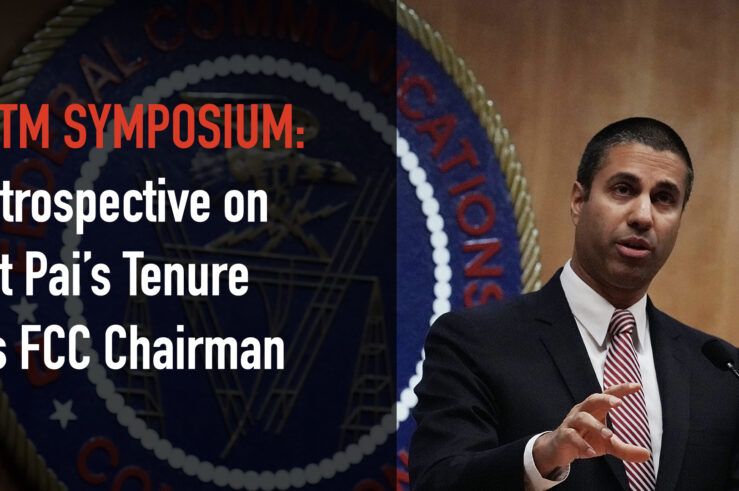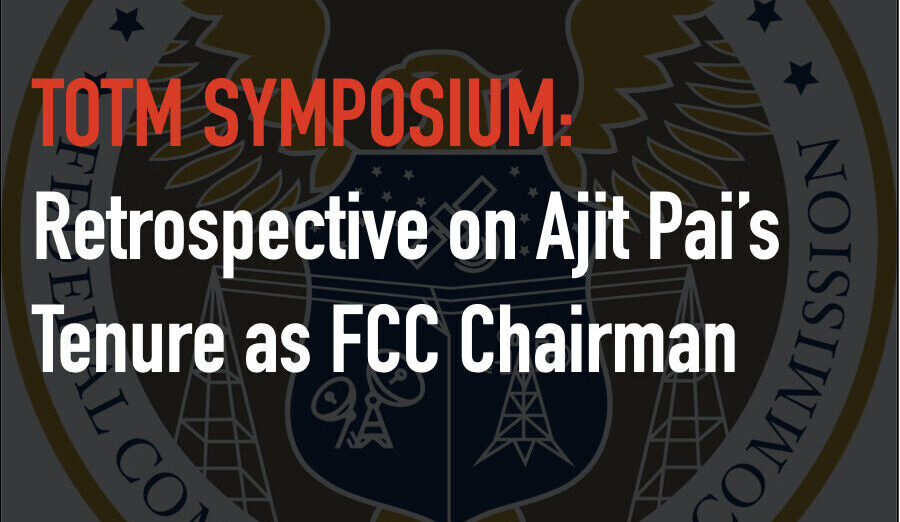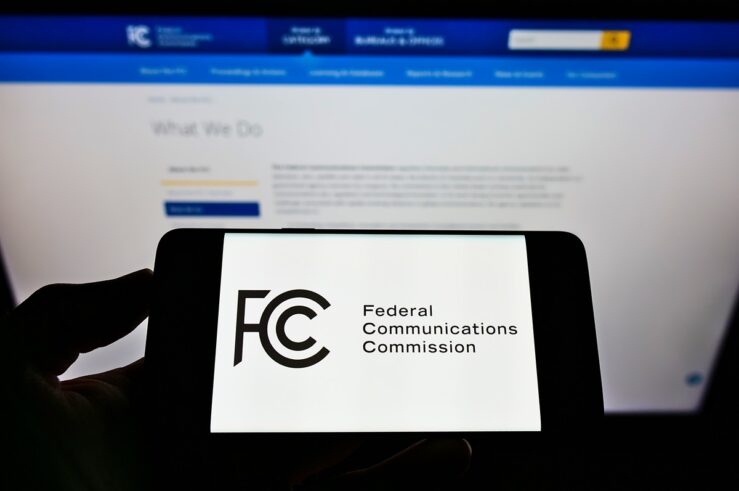
This article is a part of the Retrospective on Ajit Pai's Tenure as FCC Chairman symposium.

Ajit Pai came into the Federal Communications Commission chairmanship with a single priority: to improve the coverage, cost, and competitiveness of U.S. broadband for the benefit of consumers. The 5G Fast Plan, the formation of the Broadband Deployment Advisory Committee, the large spectrum auctions, and other broadband infrastructure initiatives over the past four years have resulted in accelerated buildouts and higher-quality services. Millions more Americans have gotten connected because of agency action and industry investment.
That brings us to Chairman Pai’s most important action: restoring the deregulatory stance of the FCC toward broadband services and repealing the Title II “net neutrality” rules in 2018. Had he not done this, his and future FCCs would have been bogged down in inscrutable, never-ending net neutrality debates, reminiscent of the Fairness Doctrine disputes that consumed the agency 50 years ago. By doing that, he cleared the decks for the pro-deployment policies that followed and redirected the agency away from its roots in mass-media policy toward a future where the agency’s primary responsibilities are encouraging broadband deployment and adoption.
It took tremendous courage from Chairman Pai and Commissioners Michael O’Rielly and Brendan Carr to vote to repeal the 2015 Title II regulations, though they probably weren’t prepared for the public reaction to a seemingly arcane dispute over regulatory classification. The hysteria ginned up by net-neutrality advocates, members of Congress, celebrities, and too-credulous journalists was unlike anything I’ve seen in political advocacy. Advocates, of course, don’t intend to provoke disturbed individuals but the irresponsible predictions of “the end of the internet as we know it” and widespread internet service provider (ISP) content blocking drove one man to call in a bomb threat to the FCC, clearing the building in a desperate attempt to delay or derail the FCC’s Title II repeal. At least two other men pleaded guilty to federal charges after issuing vicious death threats to Chairman Pai, a New York congressman, and their families in the run-up to the regulation’s repeal. No public official should have to face anything resembling that over a policy dispute.
For all the furor, net-neutrality advocates promised a neutral internet that never was and never will be. ”Happy little bunny rabbit dreams” is how David Clark of MIT, an early chief protocol architect of the internet, derided the idea of treating all online traffic the same. Relatedly, the no-blocking rule—the sine na qua of net neutrality—was always a legally dubious requirement. Legal scholars for years had called into doubt the constitutionality of imposing must-carry requirements on ISPs. Unsurprisingly, a federal appellate judge pressed this point in oral arguments defending the net neutrality rules in 2016. The Obama FCC attorney conceded without a fight; even after the net neutrality order, ISPs were “absolutely” free to curate the internet.
Chairman Pai recognized that the fight wasn’t about website blocking and it wasn’t, strictly speaking, about net neutrality. This was the latest front in the long battle over whether the FCC should strictly regulate mass-media distribution. There is a long tradition of progressive distrust of new (unregulated) media. The media access movement that pushed for broadcast TV and radio and cable regulations from the 1960s to 1980s never went away, but the terminology has changed: disinformation, net neutrality, hate speech, gatekeeper.
The decline in power of regulated media—broadcast radio and TV—and the rising power of unregulated internet-based media—social media, Netflix, and podcasts—meant that the FCC and Congress had few ways to shape American news and media consumption. In the words of Tim Wu, the law professor who coined the term “net neutrality,” the internet rules are about giving the agency the continuing ability to shape “media policy, social policy, oversight of the political process, [and] issues of free speech.”
Title II was the only tool available to bring this powerful new media—broadband access—under intense regulatory scrutiny by regulators and the political class. As net-neutrality advocate and Public Knowledge CEO Gene Kimmelman has said, the 2015 Order was about threatening the industry with vague but severe rules: “Legal risk and some ambiguity around what practices will be deemed ‘unreasonably discriminatory’ have been effective tools to instill fear for the last 20 years” for the telecom industry. Internet regulation advocates, he said at the time, “have to have fight after fight over every claim of discrimination, of new service or not.”
Chairman Pai and the Republican commissioners recognized the threat that Title II posed, not only to free speech, but to the FCC’s goals of expanding telecommunications services and competition. Net neutrality would draw the agency into contentious mass-media regulation once again, distracting it from universal service efforts, spectrum access and auctions, and cleaning up the regulatory detritus that had slowly accumulated since the passage of the agency’s guiding statutes: the 1934 Communications Act and the 1996 Telecommunications Act.
There are probably items that Chairman Pai wish he’d finished or had done slightly differently. He’s left a proud legacy, however, and his politically risky decision to repeal the Title II rules redirected agency energies away from no-win net-neutrality battles and toward broadband deployment and infrastructure. Great progress was made and one hopes the Biden FCC chairperson will continue that trajectory that Pai set.




